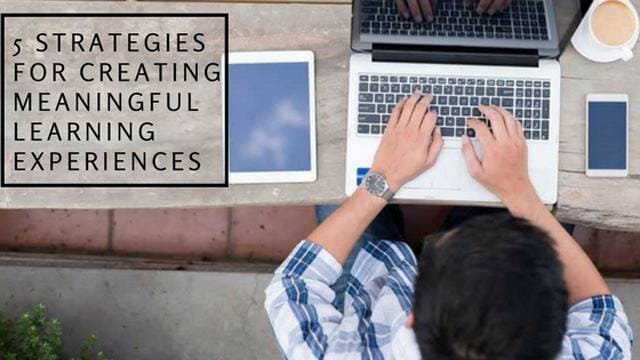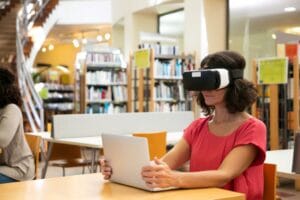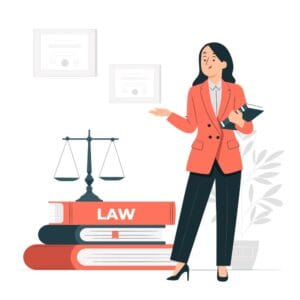The concept of online learning has become very popular not only among the students but others as well. This form of learning has opened new opportunities for the people who wish to grow but lack the right course or assistance. The internet not just offers you a vast array of courses or programs to match your interest but it is quite affordable and comfortable. As per your feasibility, you can choose whichever course you want and fix the time schedule accordingly. You get to explore a lot through Online Learning with the topmost professionals coming your way. In all the experience is really amazing as you get to witness a lot of new things. This is the reason that online learning has become the first preference of people.
But to attract people to E-Learning is slightly difficult. Unless they find the course to be relevant and worth trying, they will never get in touch with you. So the most important question here is that whether the professionals ever think what their learners are looking for. Do they talk to the people and get to know what they are expecting? Certainly No ! Though, a few of them may be doing the same most of them not. This is what makes a difference in the Learning Experiences of the individuals.

Usually, the experts or the professionals teach what part of the syllabus is or what they feel is essential for you to learn. The focus is never on the fact that the learners need to be engaged and similar approaches have to be followed for the same. All this is only possible if the bottom-up tactics are applied to teaching rather than the top-down. Also, an effort has to be made to ensure that teaching is interesting, full of fun with lots of practical knowledge as well. All this, when put together, will surely enhance the learning experience of the people.
To achieve the same, the professionals need to rely on the 5 crucial strategies which are discussed below.
1. Evaluate timely and frequently
Have you ever realized why the marketing experts pay so much attention to their target audience or why the business owners want to learn about their customers? It is because of the simple reason that they want the people to connect with them and indulge in sales. This is only possible when you get to know them better. The same is the case with online learning as well where the professionals need to give time to the people and know what they are looking for. Now a question arises that how this will be possible.
The only way out for this is to assess on a regular basis. Now there can be a number of things related to it like what the people wish to learn, how they want to learn and many other aspects. KWL is one of the best methodologies that work here. It means focusing on what your students already know, what they wish to learn, and what they have learned from you. So based on this you can modify your teaching strategy and make sure it is liked by the students and they benefit from it. Make sure they feel free and comfortable to ask their doubts so that there is no confusion and they are able to make the most out of the course or program.
Another thing that the experts can do is take the feedback of the students to know them better as it will help you in gaining an insight into what they want. So accordingly you can make changes that will satisfy them completely. Then you can organize quizzes or even give the assignment to see what they have learned. Following this approach on a regular basis will surely prove beneficial for both the students as well as the professionals.
2. Give them practical knowledge
Theoretical knowledge is of no use until it is put to practical use and that is why it is important that professionals follow a creative approach and make sure the things come alive. This will create interest in the minds of the students and they will love exploring things that actually come to use when they work in the desired field. This is when online learning proves to be really helpful as you get to work on live projects which itself is a new and exciting experience for the people.
Now there are two ways to accomplish this purpose. Firstly you can indulge them in problem-solving which can be done in groups or on an individual basis. This will result in getting deep into the topic, analyzing it, and coming up with their doubts. So the problems that are encountered in the real work can be taken up so that you get practical experience. Secondly what you can do is that the students can join communities that are involved in similar tasks as your class program. This is again quite beneficial because you are able to put your theoretical information into action and see what results come out.
There is no point in teaching something that does not connect to the real world or which is entirely different from the real world. The program has to be such that it prepares the students to face real-life challenges rather than just learning things that do not come at all handy when you move into the real world. So it becomes the duty of the professionals to let the students go deep into teaching and explore as much as they can.
3. Welcome their feedback
Last but not least is the feedback from the students that help you to frame a better program for them. The response of the students will let you know what they expect from the course and accordingly you can ensure that the same is given to them. Make sure your students come out with their ideas and thoughts that will help you in the teaching methodology. For this, you need to have a good bond only then the students will be free to tell you what they feel about the program and give their valuable suggestions.
So the professionals need to welcome the feedback from the students as it is helpful for both. It becomes easy for the professional to convey their thoughts while the students learn what interests them the most. In all, you can say that it is a tactic that must be followed by professionals to make a difference in their methodology.
4. If Learning is Generalized, Functional and Durable
Durable implies that it is recorded in our long-haul memory and we can get to it whenever. Generalizable implies that learning is related to various settings, circumstances, and assignments. In conclusion, practical learning implies that learning influences us to act in an unexpected way.
Instructing in view of these thoughts includes understanding the two key attributes of the learning procedure:
Durable Learning is just conceivable when consideration, practice, and reiteration are joined together.
Everything learned is either connected with the subject, the assignments, the cooperation with others; or the physical setting where they have been instructed. The further exchange of this information to different subjects, undertakings, communications, or spaces is not accomplished precipitously and must be educated.
5. Abstain from Using Distinct Contexts and Tasks
At the end of the day, learning is contextualized and the understudy can’t sum it up swiftly. The more particular the specific situations or undertakings are, the more troublesome it is for a student to sum up what they have realized.
This is the reason the educator must guide the exchange of information to different settings and assignments. Requesting that the student utilize the same numerical operation in various assignments, subjects, and physical settings, causes him to sum up this learning, and through redundancy, he or she stores it in the understudy’s long-haul memory.
If all the above 5 strategies are followed seriously, it will definitely improve the learning experience. Want to learn about Math Tutor?











